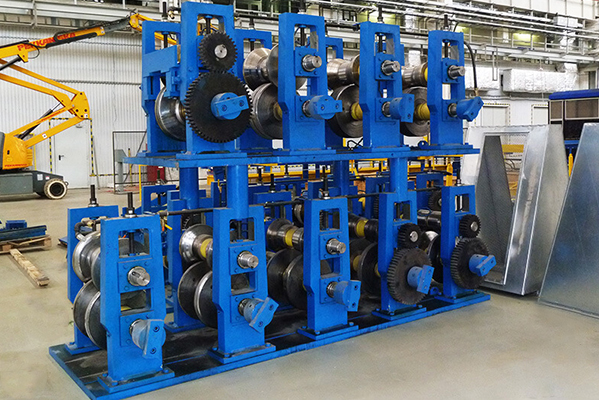Navigation Menu
Contact Us
- Email:
- info@wxavatar.com
- Address:
- Yurong Village, Yuqi Street, Huishan District, Wuxi, China.
Release Date:Jul 09, 2025 Visit:70 Source:Roll Forming Machine Factory
The railroad industry, a cornerstone of global logistics and infrastructure, is continually seeking efficiencies and advancements in its operational processes. In recent years, a notable trend has emerged: an increasing number of companies are integrating coil processing solutions into their manufacturing and maintenance workflows. This shift isn't arbitrary; it's driven by several compelling advantages that these specialized systems offer.

At its core, coil processing involves the unwinding, leveling, cutting, and often forming of large rolls of metal, known as coils, into precise sheets or blanks. For an industry that relies heavily on metal components—from railcar construction and track maintenance to signaling equipment and locomotive parts—the ability to handle and process metal with greater accuracy and speed is paramount.
One of the primary drivers behind this adoption is the significant improvement in material utilization. Traditional methods often involve purchasing pre-cut sheets, which can lead to considerable material waste if the dimensions don't perfectly match the required specifications. Coil processing allows companies to cut material to exact lengths and widths on demand, minimizing scrap and optimizing resource use. This not only contributes to more streamlined operations but also to better cost control.
Furthermore, enhanced precision and consistency are critical benefits. Modern coil processing lines incorporate advanced sensors and automation, ensuring that each cut and form meets rigorous quality standards. This level of accuracy is vital for components that must withstand the immense stresses and operational demands of railroad applications, where even minor deviations can impact performance and safety. The consistency achieved through these systems also simplifies assembly processes and reduces the likelihood of fitment issues.
The flexibility and adaptability offered by coil processing solutions are also highly valued. With the ability to process a wide range of metal types and thicknesses, companies can quickly switch between different product lines or adjust to varying material requirements without extensive retooling. This agility is particularly advantageous in an industry that often deals with custom orders and diverse project specifications. It enables manufacturers to respond more swiftly to market demands and maintain a competitive edge.
Finally, the operational efficiency gained from integrating coil processing cannot be overstated. By automating what were once labor-intensive and time-consuming tasks, companies can significantly reduce production cycles and increase throughput. This translates to faster project completion times and the ability to handle larger volumes of work, ultimately bolstering overall productivity.

In conclusion, the increasing embrace of coil processing solutions within the railroad industry is a clear indication of its practical benefits. Companies are recognizing that these systems provide a robust framework for improving material handling, enhancing product quality, boosting manufacturing flexibility, and driving operational efficiencies, all of which are essential for navigating the complexities of modern industrial demands.